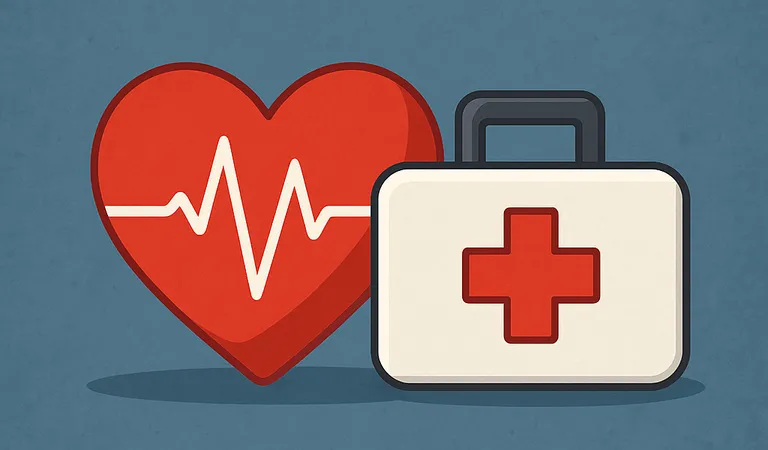Date: June 23, 2025
Introduction
A heart attack can be terrifying, especially when you're alone. Knowing what to do in those first critical minutes can make all the difference. This guide walks you through immediate actions that could help save your life during a heart attack if no one is around to assist you.
1. Recognize the Symptoms Early
The most common signs of a heart attack include:
- Chest pain or discomfort
- Pain spreading to the arms, neck, jaw, or back
- Shortness of breath
- Cold sweat, nausea, or lightheadedness
Important: Not everyone experiences severe pain. Women, in particular, may experience more subtle symptoms such as fatigue, dizziness, or nausea.
2. Call Emergency Services Immediately
Dial emergency services (911 in the U.S.) right away. Don’t drive yourself to the hospital unless there’s absolutely no alternative. Explain your symptoms clearly and unlock your door if possible for paramedics.
While waiting for help, take deep breaths followed by strong, repeated coughs every two seconds. This technique helps compress the heart and maintain blood circulation until assistance arrives.
3. Take an Aspirin (If Available)
If you’re not allergic and haven’t been told otherwise by a doctor, chew (not swallow) a 325 mg aspirin. This can help prevent blood clots from worsening.
4. Try to Stay Calm and Upright
- Sit down or lie on your back with your knees bent to reduce the strain on your heart.
- Try to remain calm and breathe slowly to reduce your heart's workload.
- If you have been prescribed nitroglycerin, take it as directed.
5. Cough CPR – Myth or Truth?
There’s a myth online suggesting that forceful coughing can keep your heart beating during a heart attack. However, experts warn that this is not proven and may not be effective or safe. It's better to call emergency services immediately and focus on staying calm.
6. Prepare in Advance
You can’t plan when a heart attack strikes, but you can:
- Keep your phone and emergency contacts easily accessible.
- Inform family/friends about any heart conditions.
- Carry aspirin or nitroglycerin if advised by a doctor.
- Learn CPR — it could help others too!
Conclusion
Being alone during a heart attack is frightening, but taking swift and informed action can save your life. Recognize the symptoms early, call for help, and stay calm. Knowledge is your best defense.
By ✍️ Yorlinda Ramirez - MicuPost Team
Sources:



